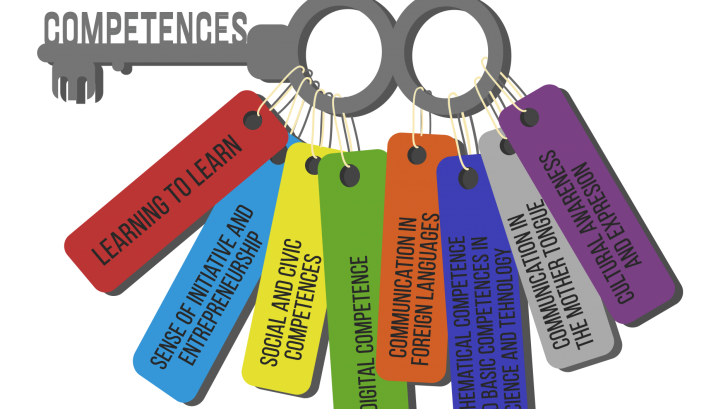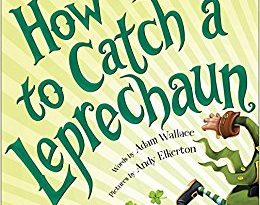TOWARDS A COMPETENCE-BASED METHODOLOGY.
Modern curricula are shifting from direct methodologies towards competence-based approaches in line with the demands of our complex and technological society.
We suggest candidates to extract the most prominent ideas in the presentation and reflect on how these principles can be put into motion in specific FL tasks.
SCRIPT.
Welcome to this first session. To start this course we want to ask the fundamental question: why developing learners competence is so important? And Why should teaching learning and assessment be grounded in a competence based approach?
Life is increasingly non routine, problem-based and technology-rich. That’s why education systems are moving away from solely content led approaches and focusing more on helping learners develop a range of competences to cope in a complex world.
Education today just, as in previous centuries, is intended to promote to learners personal growth, citizenship and preparation for the world of work. However, the skills needed for this in today’s society, just as in the future society of the 22nd century, are and will continue to be very different from those that were needed in previous times. While some skills such as numeracy and literacy are just as important today as they were in the past, are there more transversal and higher order skills, such as collaborative problem-solving are increasingly valuable for citizens to be able to effectively take part in life today, whether personally, socially or professionally.
Let’s hear what Professor Patrick Griffin of the University of Melbourne had to say when we interviewed him about the importance of these competences in today’s world of work.
What’s happening is that the kind of routine work that people used to do is now being done by robots; it’s being done by technology. And it’s the non routine manual work and the non routine cognitive work where jobs are developing. When someone goes into school now in grade one and if they go through 12 years of school, the kind of occupations that exist when they exit school will be very different to those that were there when they went into school.
There was a whole massive change taking place in developed economies in particular; and one of the key critical skills that people have to learn to do is to work together in teams, collaborative teams. And that kind of interactive, consultative, collaborative work is growing in leaps and bounds and putting huge pressure on education.
The need for school students to develop competences, also known as key competences or 21st century skills, has increasingly gained importance, and has recently become prominent in education systems worldwide thanks to social and economic motivations, as well as developments in educational research.
The need to improve the quality and relevance of competences learners acquire before leaving formal education has been widely recognized, particularly in view of Europe’s current high youth unemployment.
Knowledge and basic skills are necessary but no longer sufficient to meet the complex requirements of today’s social demands in an increasingly competitive global economy.
As we heard from Patrick, in a digital world, where functional skills based professions are in decline, competence oriented education has particular relevance. New technologies are constantly changing the way we learn, work, live and function in a digital and knowledge-based society. So the need to develop learners’ competences seems pretty clear; but what exactly are they and which ones should we be focusing on?
A useful definition is given by Hoskinsand Crick, who state that a competence can be defined as a complex combination of knowledge, skills, understanding, values, attitudes and desire which lead to effective embodied human action in the world in a particular domain. In other words, being competent means being able to effectively apply a combination of knowledge skills and attitudes to successfully react to a situation or solve a problem in the real world.
The term competence was originally used in the professional context in France to the 1970s to refer to what employees needed beyond qualifications to act effectively in a range of work situations.
In the 1980s competence based approaches started to be developed in vocational education training in various countries. Since then, the growing importance of competences has meant that competence based learning, has now also been extended to general school education , which is a focus of our course.
Competences are expressed, understood and implemented within each education system in different ways, according to national context depending on educational philosophies, historical and political traditions, as well as outside influences.
Countries have therefore developed their own national definitions and competence frameworks, including subject based, as well as transversal competences.
In addition to this range of national frameworks, some of which we will look at later in this module, various international competence frameworks have been developed over the past 20 years. These include the European Union’s recommendation on key competences for lifelong learning, the UNESCO framework, the OECD DeSeCo framework, partnerships, 21 framework and the ATC 21st century skills framework.
All these frameworks share common points and have been developed in consultation with experts and stakeholders globally.
For the purposes of this course we will mainly use the European Union framework and the ATC 21st century skills framework as reference points. You can access all the frameworks mentioned if you’re interested in further reading from our course library. Let’s firstly take a brief look at the ATC 21st century skills framework, which includes four dimensions, ways of thinking, ways of living in the world, ways of working and tools for working. Ways of thinking is conceptualized as including creativity and innovation, critical thinking, problem solving, decision making and learning to learn. Ways of living in the world includes local and global citizenship, life and career skills, personal and social responsibility and cultural awareness. Ways of working isn’t considered to include collaboration and communication. And tools for working comprise information literacy and ICT literacy.
As you will see, the European framework also refers to all these competences, but is more firmly rooted in the context of the school curriculum.
As school education is the focus of our course, let’s take a closer look at the European framework.
The European Union framework developed by the European Commission in consultation with all Member States, includes the following eight key competences: Communication in the mother tongue, communication and foreign languages, mathematical competence and basic competences in science and technology, digital competence, learning to learn, social and civic competences, sense of initiative and entrepreneurship and cultural awareness and expression.
All eight key competences are considered equally important, because each of them contributes to the personal fulfillment and development of all individuals. Many of the competences overlap and interlock and they are all interdependent with the following transversal skills playing an important role in each of them.
Critical thinking, creativity initiative, problem-solving risk, assessment, decision taking and the constructive management feelings.
You can access the precise definition of each of the eight key competences, as well as the knowledge skills and attitudes associated to each one in the European framework available in the course library.
You are all teachers of different subjects and while all these competences are interrelated, certain competences may be of more direct interest to you than others.
However, there is one particular competence which will be considered very important by all of you, and that is the learning to learn competence, as it is the foundation of all learning.
As with all the eight key competences, the European framework firstly provides a definition of learning to learn, and then identifies the knowledge skills and attitudes associated to it.
Learning to learn is defined as the ability to pursue and persist in learning, to organize one’s own learning, including through effective management of time and information, both individually and in groups. This competence includes awareness of one’s learning process and needs, and the ability to overcome obstacles in order to learn successfully.
In terms of the essential knowledge related to this competence, learning to learn requires an individual to know and understand his or her preferred learning strategies, and the strengths and weaknesses of his or her skills and qualifications. In terms of the essential skills related to this competence, learning to learn firstly requires the acquisition of the fundamental basic skills, such as literacy, numeracy and ICT skills, that are necessary for further learning.
Building on these skills, an individual should be able to access, gain process and assimilate new knowledge and skills. This requires effective management of one’s learning career and work patterns; and in particular, the ability to persevere, concentrate for extended periods of time and reflect critically on the purposes and aims of learning.
Learning to learn skills include being able to learn autonomously and with self-discipline, as well as being able to work collaboratively and share what one has learnt. Learners should be able to organize their own learning, evaluate their own work and seek advice, information and support when appropriate.
The essential attitudes related to this competence include the motivation and confidence to pursue and succeed learning throughout one’s life. A problem-solving attitude supports both the learning process itself, and an individual’s ability to handle obstacles and change. The desire to apply prior learning and life experiences, and the curiosity to look for opportunities to learn and apply learning in a variety of life contexts are also essential.
Whichever subjects and age-range you teach, these are the knowledge skills and attitudes you should be developing in your students to ensure they can be competent lifelong learners.
This course is intended to familiarize you with competence based learning, as a general approach. To do this, we will focus on how to develop two specific competences in students. The first is an example of a subject based competence, mathematical competence; while the second is an example of a transversal skill, which can be developed in any subject, collaborative problem-solving. You will hear more about both in modules two and three. Remember that you can access further reading and related resources to this session from our course library. We also encourage you to visit the course forum, where you can discuss the frameworks and definitions mentioned, as well as how they relate to your own national frameworks and understanding of competences.
I hope in this first week you will join the discussion with fellow participants and instructors and wish you an enjoyable rest of the course.



